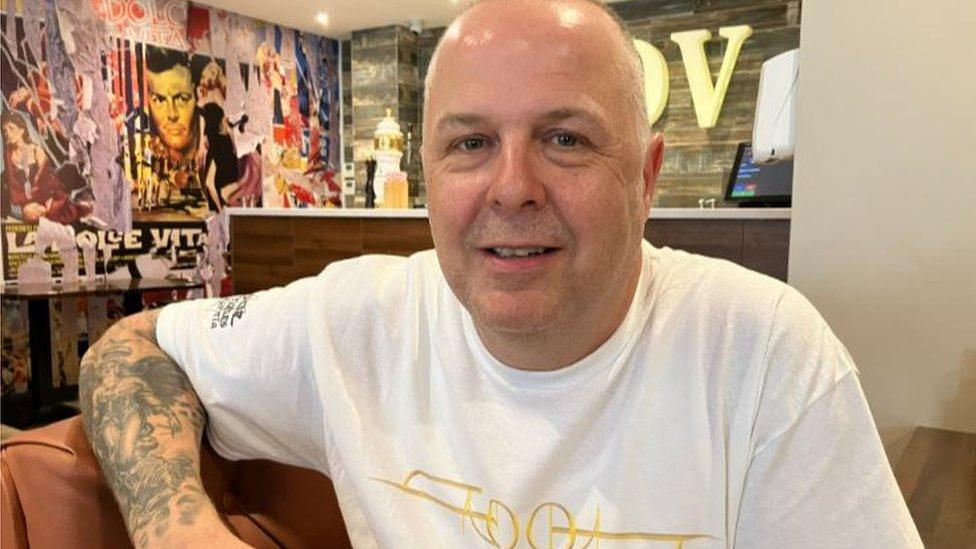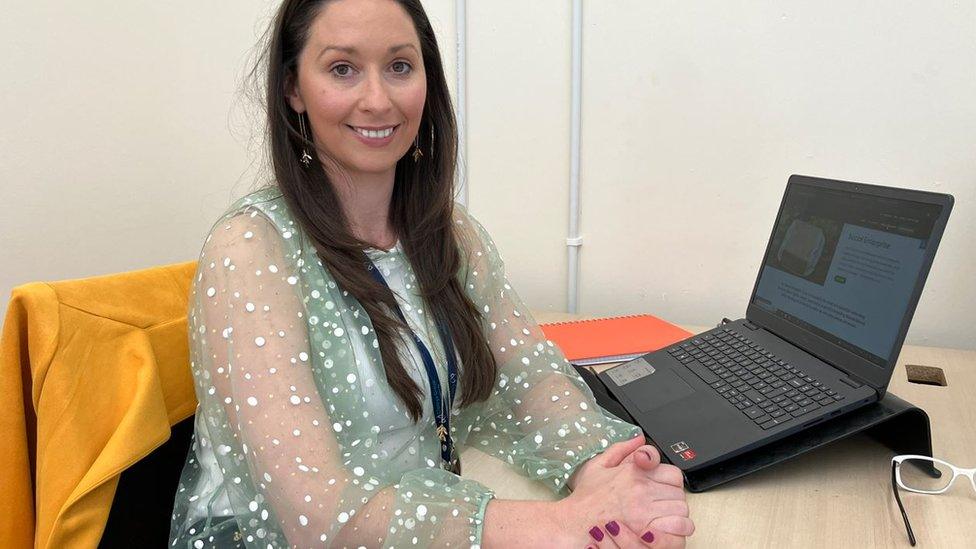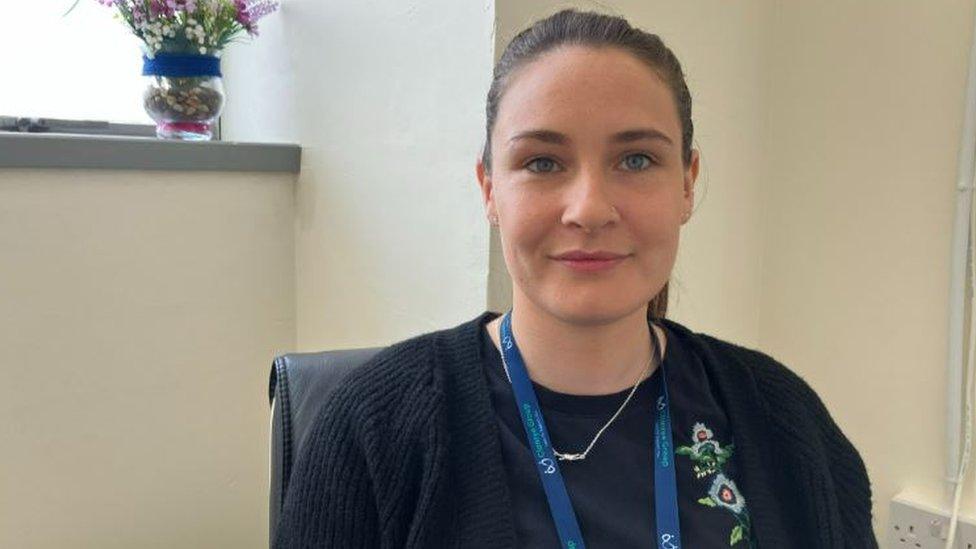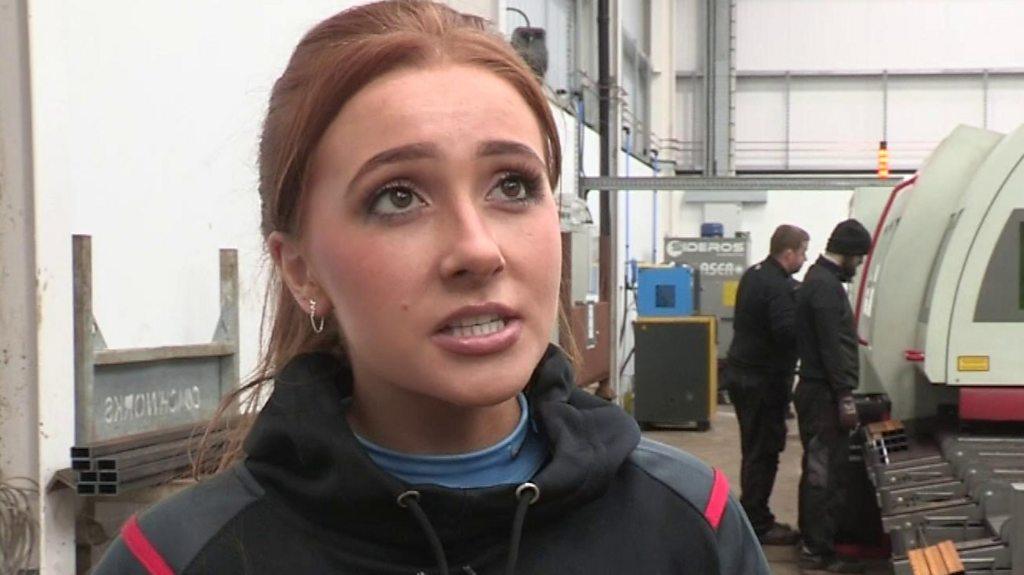Supporting NEETs: Schemes help those Not in Education, Employment or Training
- Published

Giuseppe Fallone now owns a restaurant and three takeaways
Giuseppe Fallone left school early without a clear plan of what he would do.
But a newspaper advertisement for a training course in Newry changed that.
"Before I left school I was thinking of becoming a chef but then, at the last minute I decided I was going to be an electrician. That quickly changed when I saw the ad for an apprentice baker," he said.
Giuseppe now owns a restaurant and three takeaways - the result of hard work and support.
He was among the many young people often referred to as NEETs - those who are Not in Education, Employment or Training.
It's estimated there are currently about 18,000 such young people in Northern Ireland - which represents 8% of young men and 10% of young women.
'We are witnessing after-effects of Covid'
Across Northern Ireland, there are a range of schemes aimed at helping some of these young people find focus.
At the Clanrye Group in Newry, the Regener8 programme seeks to offer participants a brighter future.
"It used to be very heavily focussed on the peace and reconciliation side of things," said Rachel Duffy from the group.
"Now it's very focussed on the needs of the local community and the young people post-Covid.
"It's employability, it's personal development, it's young people who need a little guidance and support; young people who have potentially lost their way and been involved in criminal activity, suffer from mental health challenges and want support to get their life back on track.
"There's a lot of pressure on young people right now. They were isolated for so long, everything was online.
"We are now witnessing the after-effects. They are coming in now and they don't know how to communicate with one another. The challenges now are bigger and bolder."

Rachel Duffy said there are a lot of challenges for young people nowadays
Regener8 programme coordinator Maeve Murphy agrees.
"There are more drug issues now," she said.
"A lot of the young people we work with come from quite difficult backgrounds. It could be drug and alcohol misuse or mental health issues. A lot of them have dropped out of school early with no qualifications.
"So it's about trying to re-engage them into a more positive outlook in life.
"We would have a lot of them say that social anxiety is a massive thing for them. They'll come into a room and the first thing they'll do is take out their phone and they are just looking at it constantly.
"Before they would have introduced themselves, now they are just glued to a device all the time."

Maeve Murphy is a programme co-ordinator at Clanrye
Helping break down these barriers is Tony McAteer who is taking a workshop on employability and the job opportunities that can come from learning to drive.
"Success to me is attendance and people coming in here," he said.
"Success is people being open with us and people changing their mindset that work might be an opportunity for them, maybe not immediately but down the line.
"So it is that process of not having the feeling of helplessness or feeling they are stupid."
Giuseppe embodies the success of the scheme: He was 18 when he first started a course at Clanrye, but wasn't ready for the world of business.
It was four years later that he returned with a "real passion to open my own business".
"I was still only 22 and I went back and started the same course and I actually completed it this time," he said.
"It gave me a good eye opener so that started the ball rolling and the rest is history."
Related topics
- Published10 February 2022
